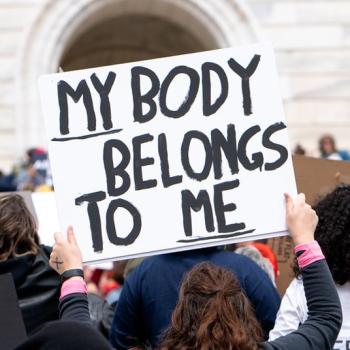If you’re like me, you’ve read or heard the parable of the Good Samaritan about a million times – but never understood its real message, although it’s been right in front of us all along.
I’ve written about this topic before, but it’s time to circle back. I was recently accused of being “selfish” because I “love people without caring about their eternity” – a sentiment I totally understand because I used to be in that camp, but one that I want to refute because this issue was absolutely life-changing for me. I want to share this with you so maybe your life can be changed too.
I can not emphasize this enough: the universe makes more sense now that it’s not divided into “Christians” and “all the other chumps who will burn in hell.” More importantly, as I’ve learned to interact with the Bible differently, God makes more sense too.
(Commercial break: this topic will be spread over several posts. Please sign up for my newsletter so you won’t miss a word.)
If the idea that everyone who hasn’t asked Jesus into their hearts is going to burn in hell – but that’s how God designed the system, and you’re one of the lucky ones – makes you uncomfortable – you are ready for this. If you are totally fine with being saved while billions of people born in the wrong place and time are damned – this will be hard to read.
But stick with it! You may be surprised (btw this isn’t my invention – I learned it from Brian McLaren, whom I was warned never to read).
For 36 years, I’ve been married to a wonderful Arab Muslim man. When we married, I was a conservative Christian, and he was a conservative Muslim.
We married for love, but we also became each other’s “project.” We tried to figure out how to get each other “saved.” We prayed for each other’s salvation, gave each other books to read, and had, let’s call them “lively debates.”
We were on opposing teams, and we were tied for last place.
It took us decades to recognize that there was “a more excellent way” (nod to 1 Cor. 12).
Paradigm upgrade
One day, we had one of those “Aha” experiences. Here’s roughly how it unfolded:
Hubby: We’ve been together for 30 years, and I haven’t convinced you to be a Muslim. Why not?
Me: Christianity is not just my religion – it’s part of who I am. It’s how I connect with God. But why haven’t I convinced you to be a Christian?
Hubby: Because Islam is not just my religion – it’s part of who I am. It’s how I connect with God.
Me: Wait a minute. What if…hear me out…what if God is pleased with both of us, simply because we seek to connect with him to the best of our ability? [Sound of both of our minds blowing.] What if God doesn’t care that much about people having exactly the right theology (if there even is such a thing)? He is a forgiving, loving God, right?
What if he really just wants us to be faithful to him in the best way we know how?
Now, conservative friends, stay with me. Because everything you’re thinking right now, I thought it too – with fear and trembling. I know by heart the verses you’re thinking about.
I know John 14:6, where Jesus says, “I am the way, and the truth, and the life. No one comes to the Father except through me” (and Acts 4:12, Rom. 10:9, John 3:36, and John 17:3, to name a few).
When it comes to the topic of salvation, we’ve been conditioned to think of these verses, and these verses only, as if that’s all the Bible has to say about it.
But that’s not all the Bible says, and I never saw it because I never looked. I’ve been a Christian all my life, but no one ever taught me what else the Bible says about salvation.
If you’re a conservative Christian, I bet they never taught you either.
If you have a pulse, it’s not too late to learn.

The Good Samaritan
We all know the parable of the Good Samaritan (Luke 10) – but do you remember the context?
Someone asks Jesus, “What must I do to inherit eternal life?” Jesus’ answer, of course, is the parable. He closes the conversation with the words, “Go and do likewise” – i.e. “and that’s how to inherit eternal life.”
His parable-answer could be summarized as, “Here’s how to inherit eternal life: that guy from the story who practices a different religion from yours – I want you to live like him. Those other guys from the story who practice your religion – they are getting it wrong.”
Another way to say it might be, “Eternal life is not about theology. It’s about love.”
That can’t be right (except it can)
I’ve had conversations with folks who insist on reading between the parable’s lines – “what Jesus meant was…” – as though Jesus was unable to express himself clearly. Maybe you’re thinking that way too: “there has to be an explanation, because the Bible definitely doesn’t say you can get to heaven merely by living a life of sacrificial love.”
We’ve been trained to believe that maybe Jesus wants us to be good neighbors, but what he needs is for us to say a certain series of words (along the lines of, “Please come into my heart and forgive my sins”), and ultimately that’s all that matters.
We’re more comfortable changing Jesus’ words than taking them at face value.
Am I suggesting that asking Jesus into one’s heart is irrelevant? No.
Am I suggesting that John 14:6 is wrong? No.
I’m suggesting that faith in God is not a formula.
I’m suggesting that “I’m right and everyone else is wrong” thinking ignores what God really desires, which is love (think greatest commandment).
I’m suggesting that sometimes (deep breath), people of another faith might be closer to the will of God than people of our own faith (or ourselves).
We want to boil Scripture down to an essential, pocket-sized message so that it’s easy to distinguish who’s in the in-group and who’s in the out-group. This idea is miles from the example of Jesus, who preferred tax collectors, prostitutes, and lepers over Pharisees.
The Good Samaritan is not the only place where the Bible strays from our make-Jesus-lord-of-your-life-end-of-story pattern – but I’ll give you a day or two to digest this before we move on to more examples. (Subscribe to my blog so you won’t miss the next one!)
YOU MIGHT LIKE TO READ
Dear Conservative Christians: the world is complex and nuanced
Interfaith harmony: the kinship of Christians and Muslims
Can we learn to love our trans neighbors?
My U-turn from evangelical to LGBTQ+ affirming
FEATURED IMAGE: “donkey” by All Suggestions Welcome is licensed under CC BY-NC-ND 2.0













